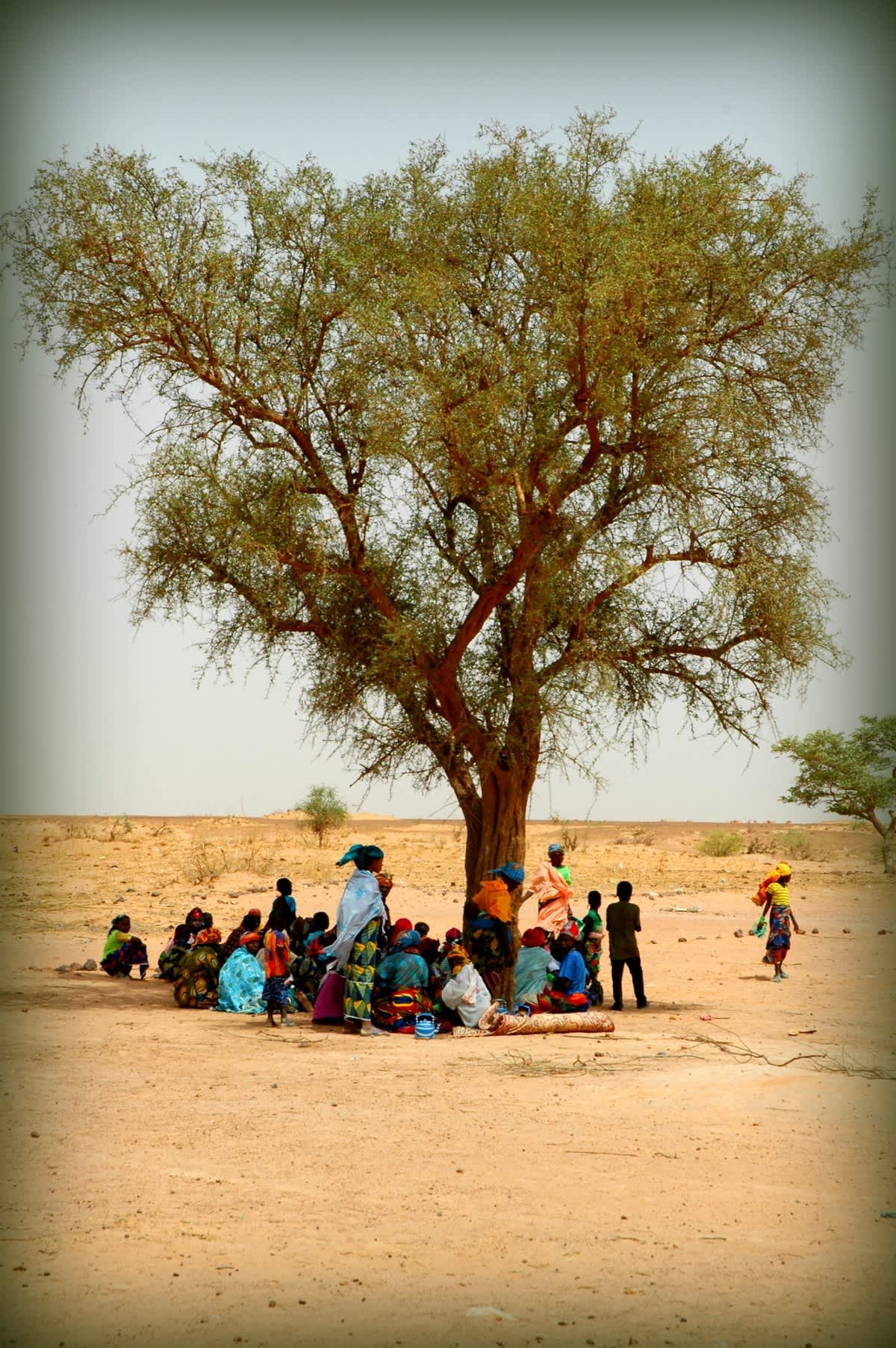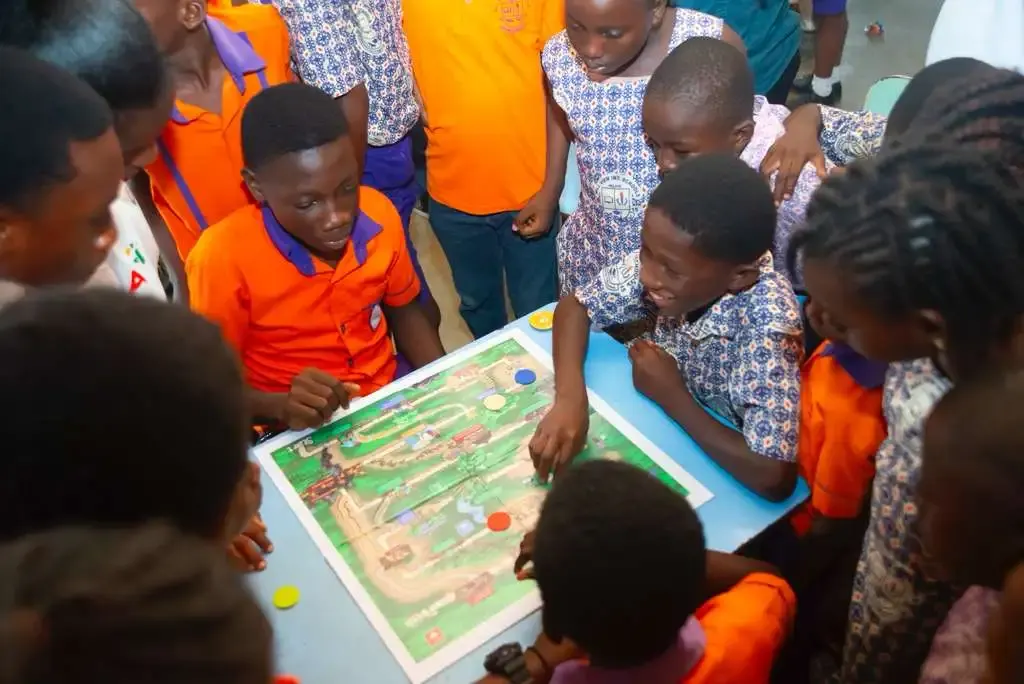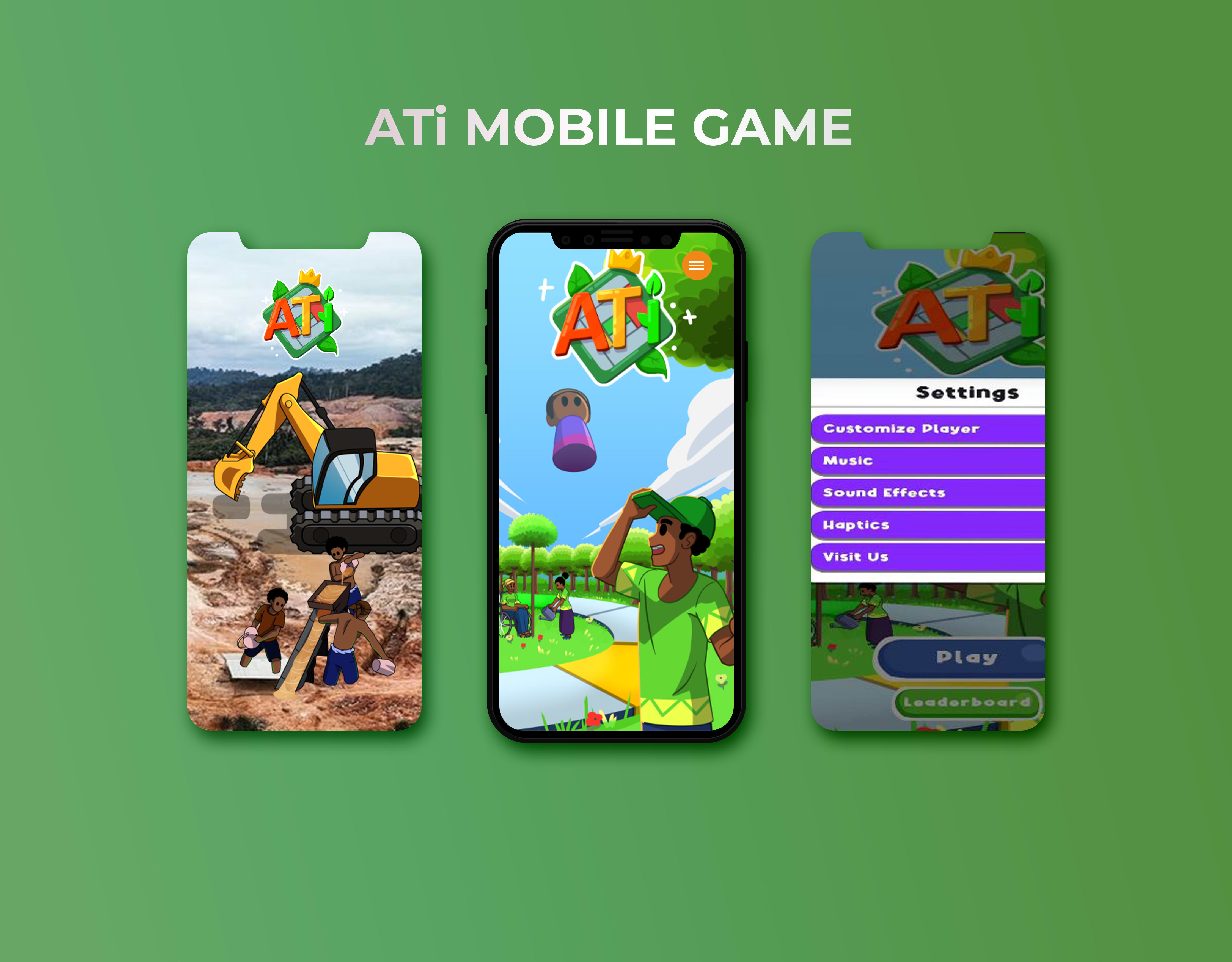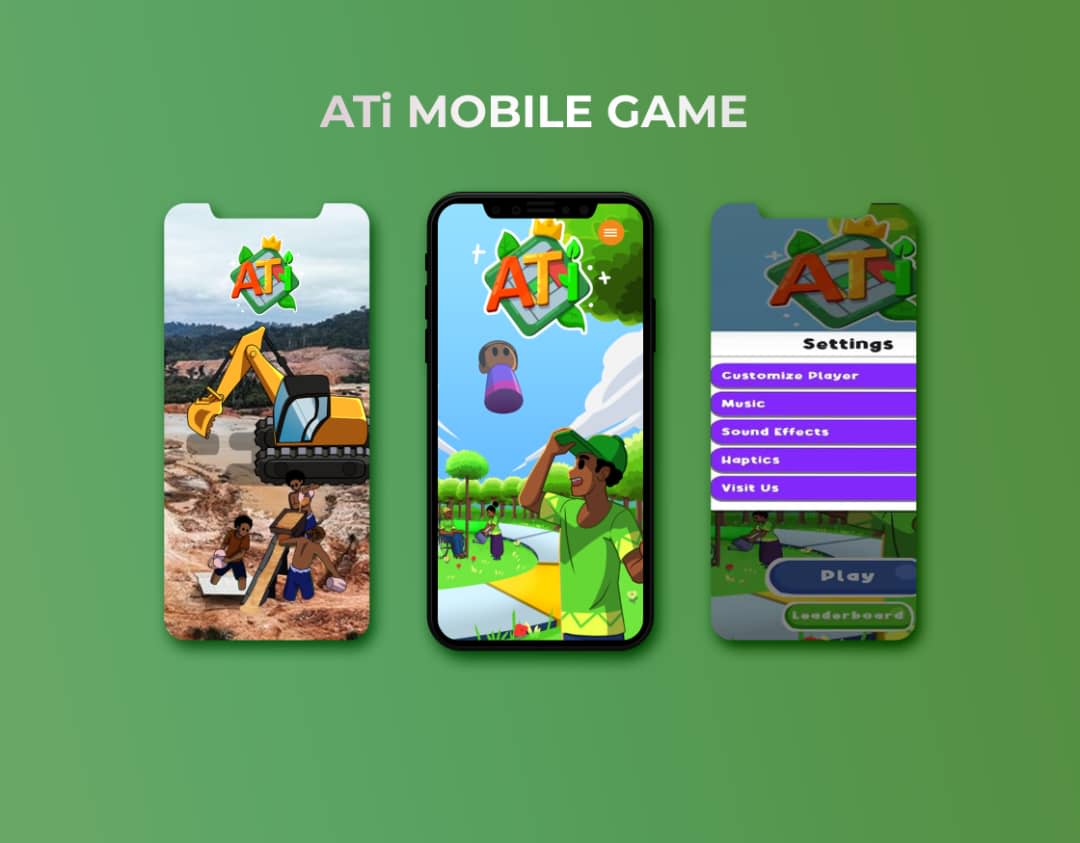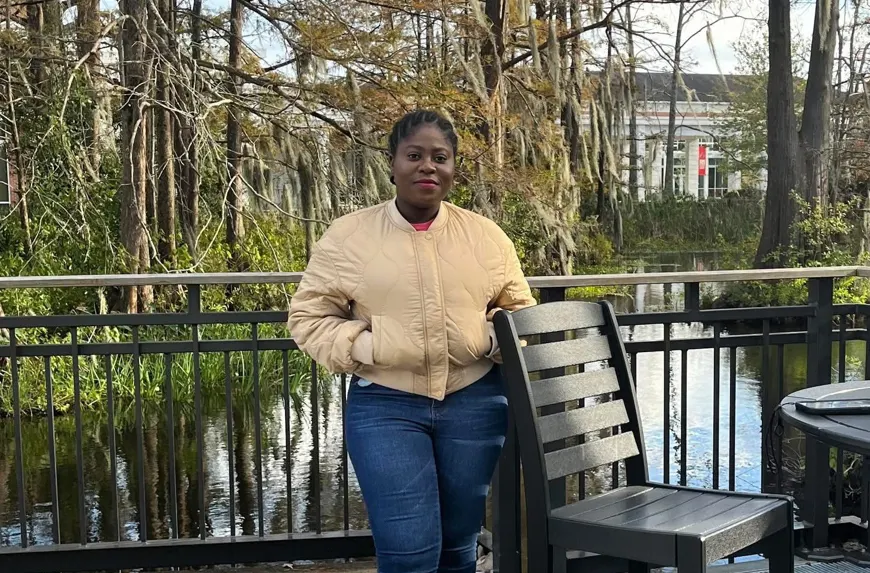
Climate Action: How a Ghanaian Innovator’s ATi Games Align with SDGs & Ghana’s Sustainability Goals
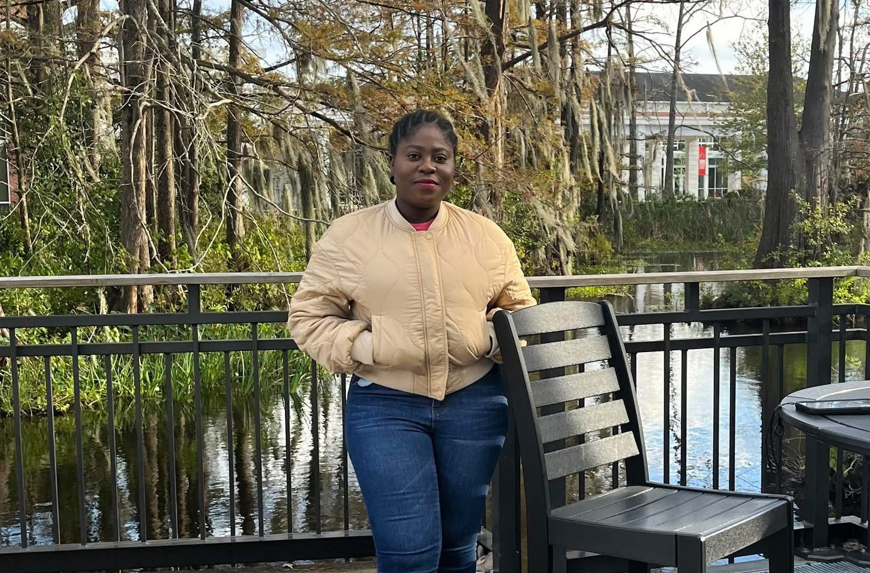
For a very long time, climate change and sustainability talks about climate are often filled with technical jargon, lofty goals, and complex strategies that leave ordinary people feeling disconnected. But one young Ghanaian innovator has found a way to translate those global ambitions into something anyone, from a six-year-old pupil in a classroom to a farmer in a rural community, can understand in the form of games.
A Ghanaian PhD student in Communication at the University of Cincinnati, Amanda Kporwofa, has developed a game called ATi, becoming Ghana’s first sustainability board and mobile games designed to fight deforestation and illegal mining.
While the innovation directly aligns with the United Nations’ Sustainable Development Goals (SDGs), it also meets Ghana’s own environmental conservation and sustainability objectives.
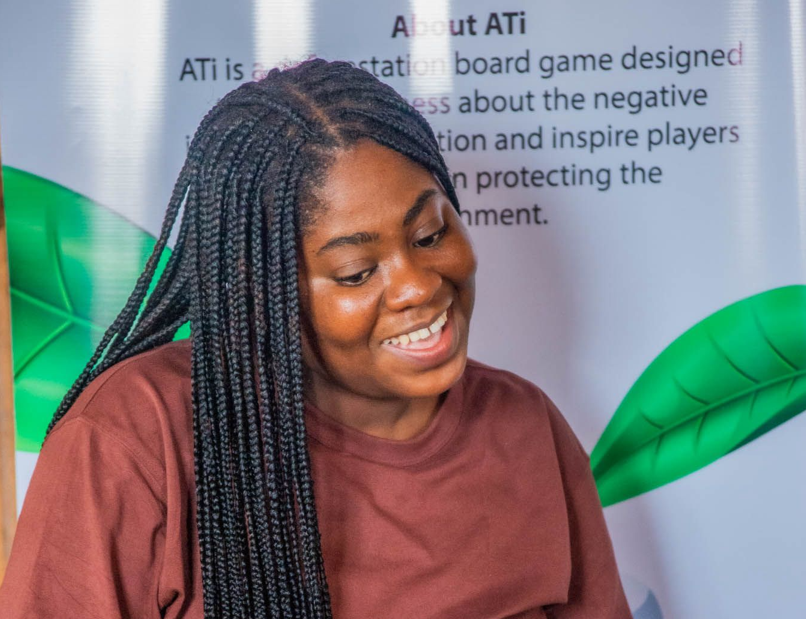
Turning Policy into Play
At first glance, ATi looks like just another board or mobile game. But beneath its colorful graphics and playful mechanics lies a serious mission. The game mirrors six interconnected SDGs.
These are SDG 3: Good Health and Well-being, SDG 4: Quality Education, SDG 13: Climate Action, SDG 14: Life Below Water, SDG 15: Life on Land, and SDG 17: Partnerships for the Goals
Amanda Kporwofa believes that by teaching players about air pollution, afforestation, sustainable land use, and clean cooking practices, ATi transforms abstract global goals into simple, relatable lessons.
Players can “win” by planting trees, protecting water bodies, or switching to cleaner cooking methods, and they “lose” progress when they engage in destructive practices like galamsey, charcoal burning, or illegal logging.
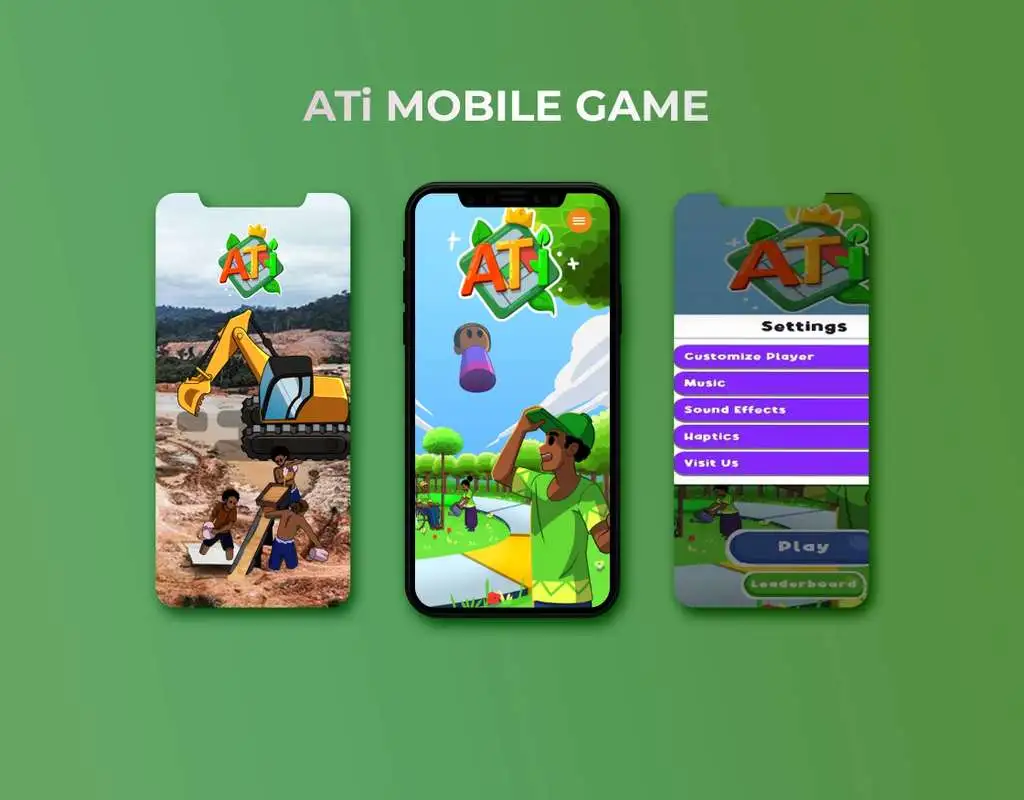
National Priorities, Local Action
ATi doesn’t just echo global frameworks. It plugs directly into Ghana’s own environmental priorities. The game supports the government’s annual Green Ghana tree-planting initiative, the Blue Water Guard campaign, and ongoing anti-galamsey efforts.
By making these campaigns interactive, ATi bridges the gap between national policy and community engagement.
One of the aims is to make the SDGs and Ghana’s climate policies practical and personal. The design also shows that sustainability is not just about protecting the planet; it’s also about creating livelihoods.
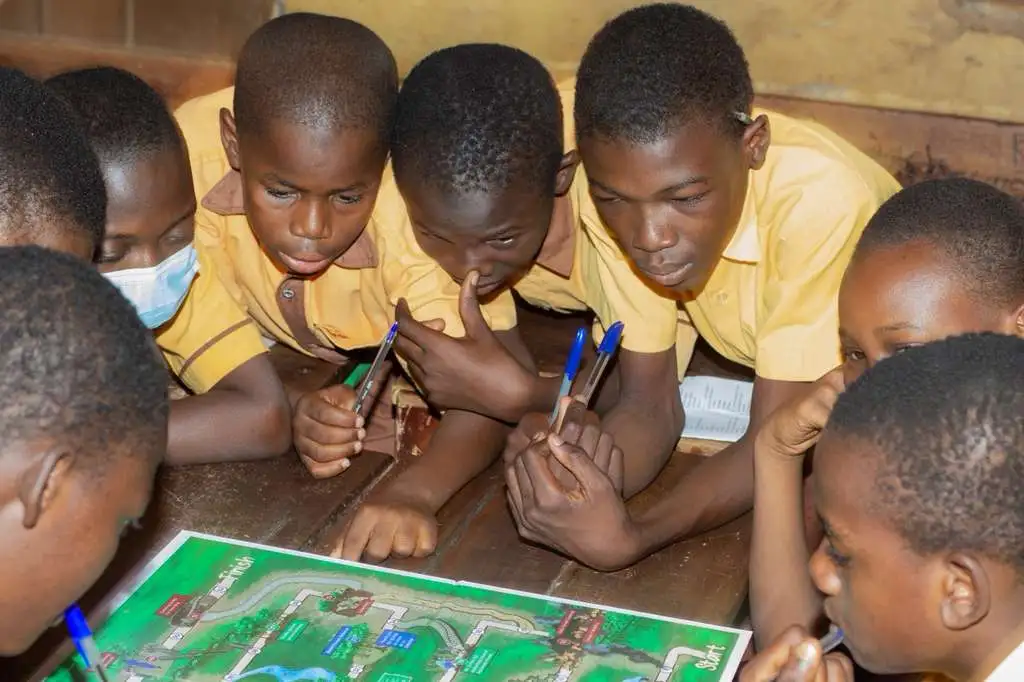
EcoGames Foundation: Scaling the Vision
What began as a school assignment has now blossomed into a larger mission through Kporwofa’s non-profit, the Eco Games Foundation. The foundation is spearheading efforts to distribute the board game to schools, communities, and institutions across Ghana while preparing for the launch of the mobile version on the Play Store.
The foundation’s vision is to make sustainability education accessible to every classroom, household, and community in Ghana and eventually across Africa.
By combining direct classroom engagement through the board game with the mass accessibility of mobile gaming, the foundation is building a model that could redefine environmental education on the continent.
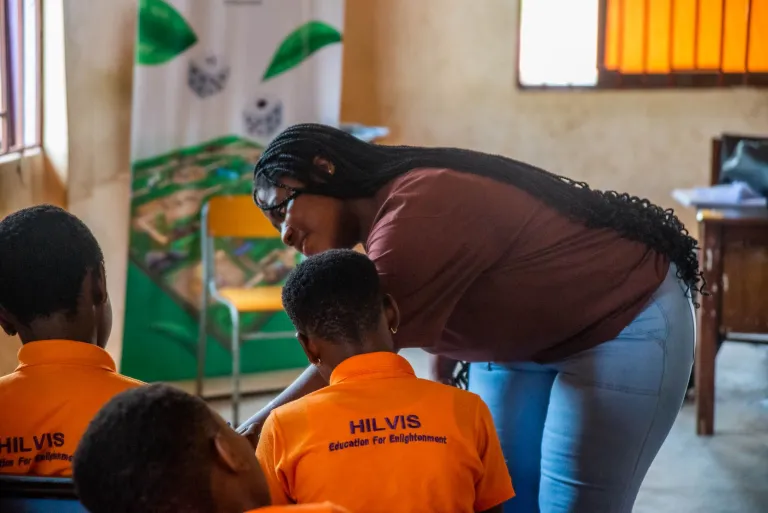
Why It Matters Now
Ghana continues to lose vast tracts of forest each year, while illegal mining destroys farmlands and pollutes rivers. These challenges often feel overwhelming, leaving many communities discouraged.
But ATi brings hope in a different way. It demonstrates that climate action doesn’t always have to begin in international conferences or government offices. Sometimes, it begins with a child rolling a dice in a classroom, or a teenager downloading an app onto their phone.
By connecting fun with responsibility, and culture with technology, ATi makes the fight against galamsey and deforestation less of a burden and more of a shared adventure.
Amanda further believes education works best when people can see themselves in it. By using Ghanaian names, cultural symbols, and familiar community settings, ATi makes climate action a part of everyday life.
The young Ghanaian’s innovation is a reminder that sometimes the most effective tools for change are not lectures or laws but games that teach, inspire, and transform
Source: The High Street Journal





